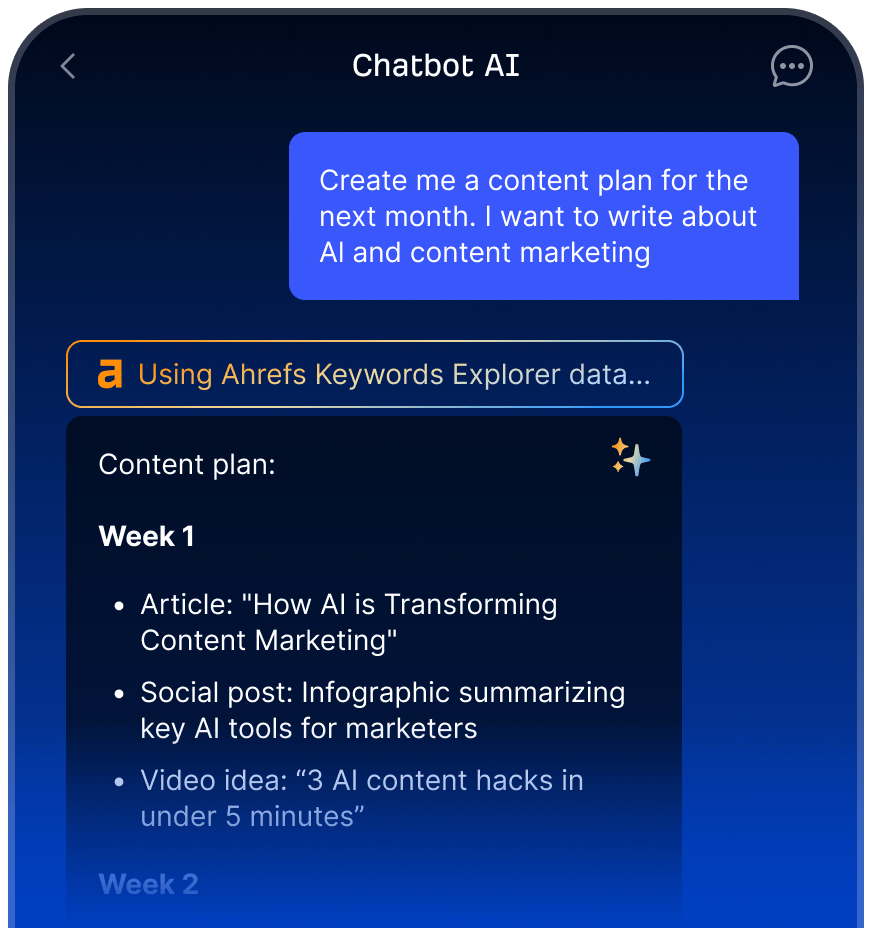Ahrefs vs. Semrush
How is Ahrefs better than Semrush
Explore the features, data, and automations that make top marketers choose Ahrefs over Semrush.


Marketers at 44% of the Fortune 500 use Ahrefs to stay ahead in search and AI.
Better data than anyone else in the industry
Get deep competitor insights, from market overviews to individual page changes. No surface-level snapshots.
Compare 10 competitors instantly. Not just 5.
Use the Performance chart to scan up to 10 competitors across Organic Traffic, Referring Domains, Share of Voice (SOV), and more metrics.
Semrush limits you to 5 competitors and restricts SOV to the highest pricing tier.
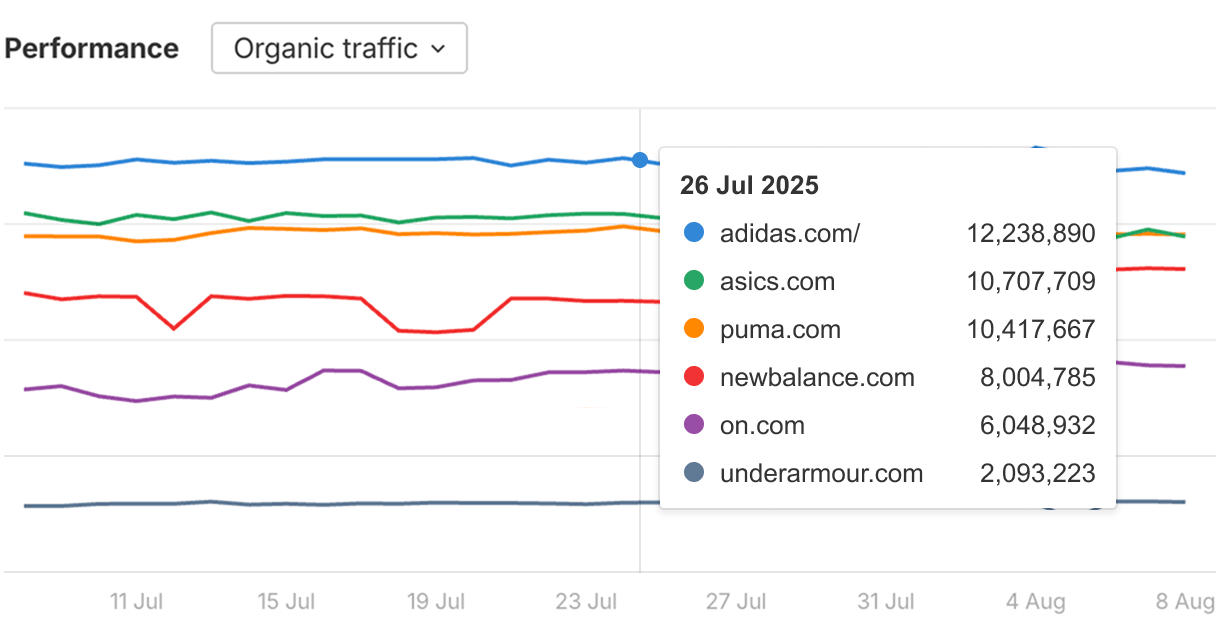
See how often your competitors get cited, not just mentioned, in AI search.
See which competing site sections drive the most organic traffic, links, and ads.
Find your competitors’ top pages, track their growth, and spot when they update their content.
Track strategic changes in messaging and see the exact content edits that lead to traffic growth or drops.
AI that drives results. Not noise.
Track brand visibility across AI search and LLMs
Optimize for global markets with AI-powered localization.
Create winning content with deep, actionable insights. Not just keyword lists.
Write for topical depth. Forget keyword stuffing.
AI Content Helper optimizes your writing with topical scores, SERP insights, and AI chat to uncover topical gaps fast.
Semrush’s optimizer focuses on keyword density, while its AI chat can't analyze competitors in real time.
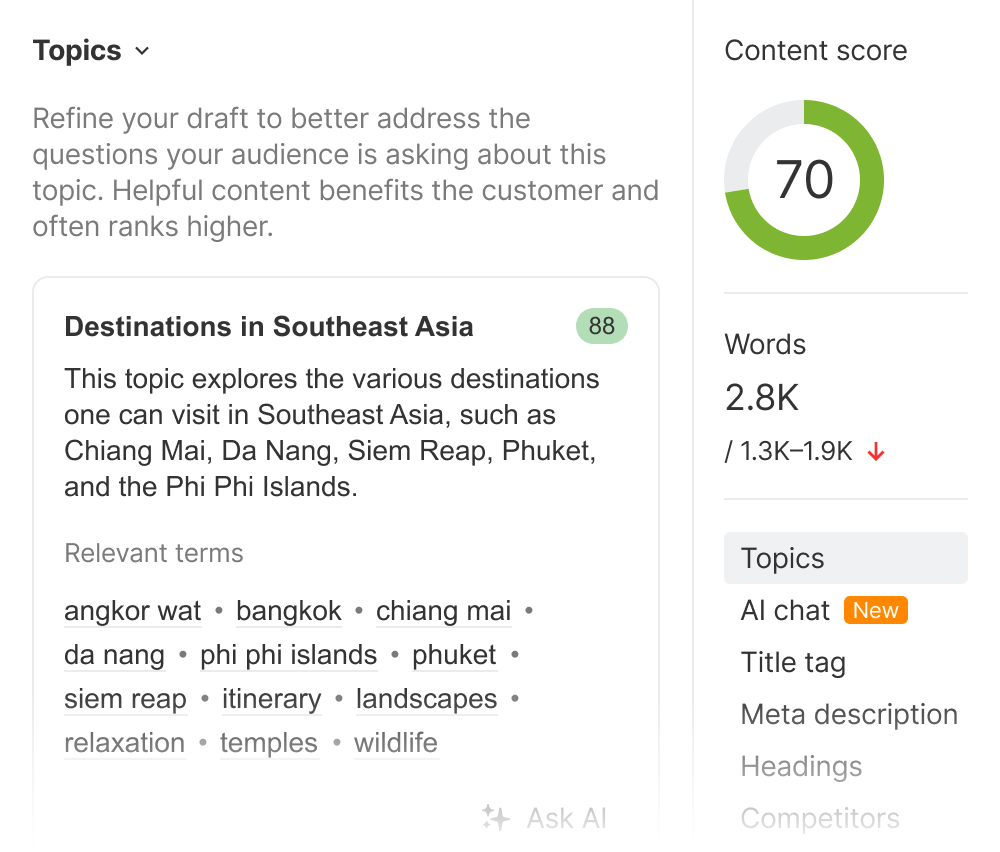
Go beyond generic keyword intents to reveal exact SERP content types and traffic share.
Compare SERPs side-by-side. Spot shifts in intent over time–across same or different keywords.
Access better backlink data and discover valuable links faster. No meaningless toxicity scores.
See backlinks that matter. Cut through the noise.
Ahrefs’ Best Links filter lets you configure the type of links you see across all reports and charts.
Semrush’s Best Filter only shows dofollow links.
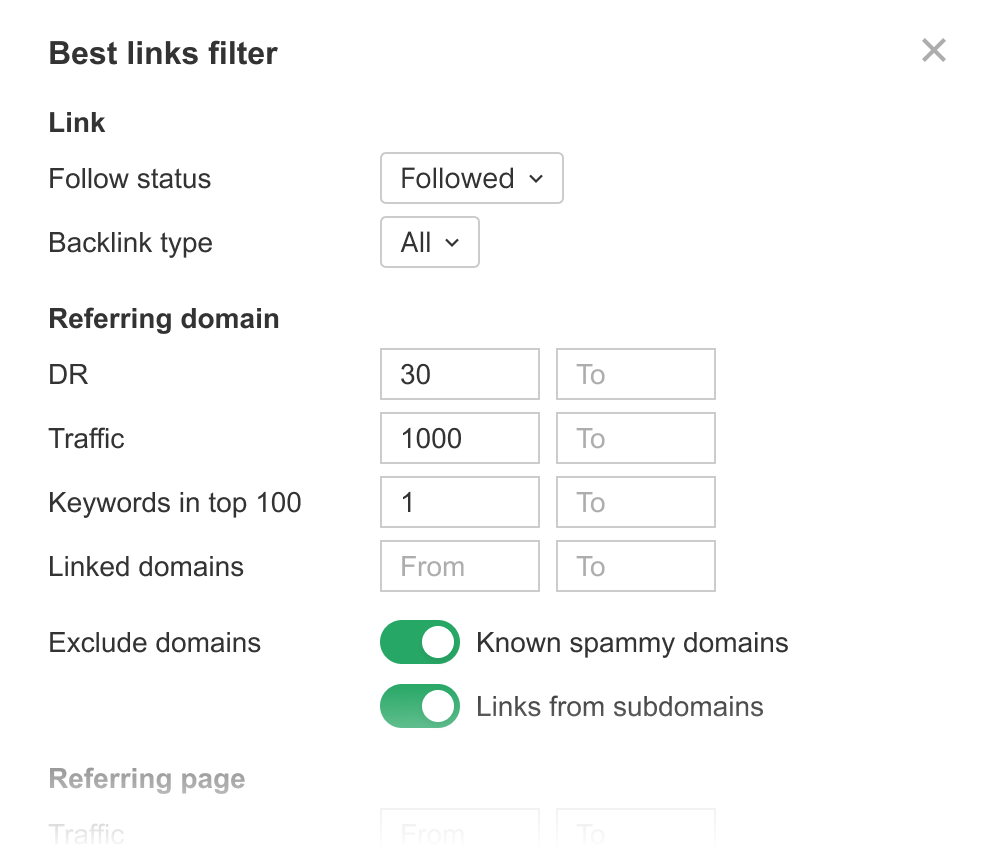
Track backlink spikes in real time as soon as they happen.
Discover top authors for outreach and guest blogging.
Unlike Semrush, we don’t offer toxic link scores since Google ignores most bad links. But, you can still filter link spam.
Find technical issues faster with detailed diagnostics. No surface-level crawls.
Every page detail in one panel. No report hopping.
Page Explorer gives you a complete diagnostic panel—plus instant page recrawl to check if changes worked.
Semrush shows less data, making you hung across multiple reports and wait for the next crawl.
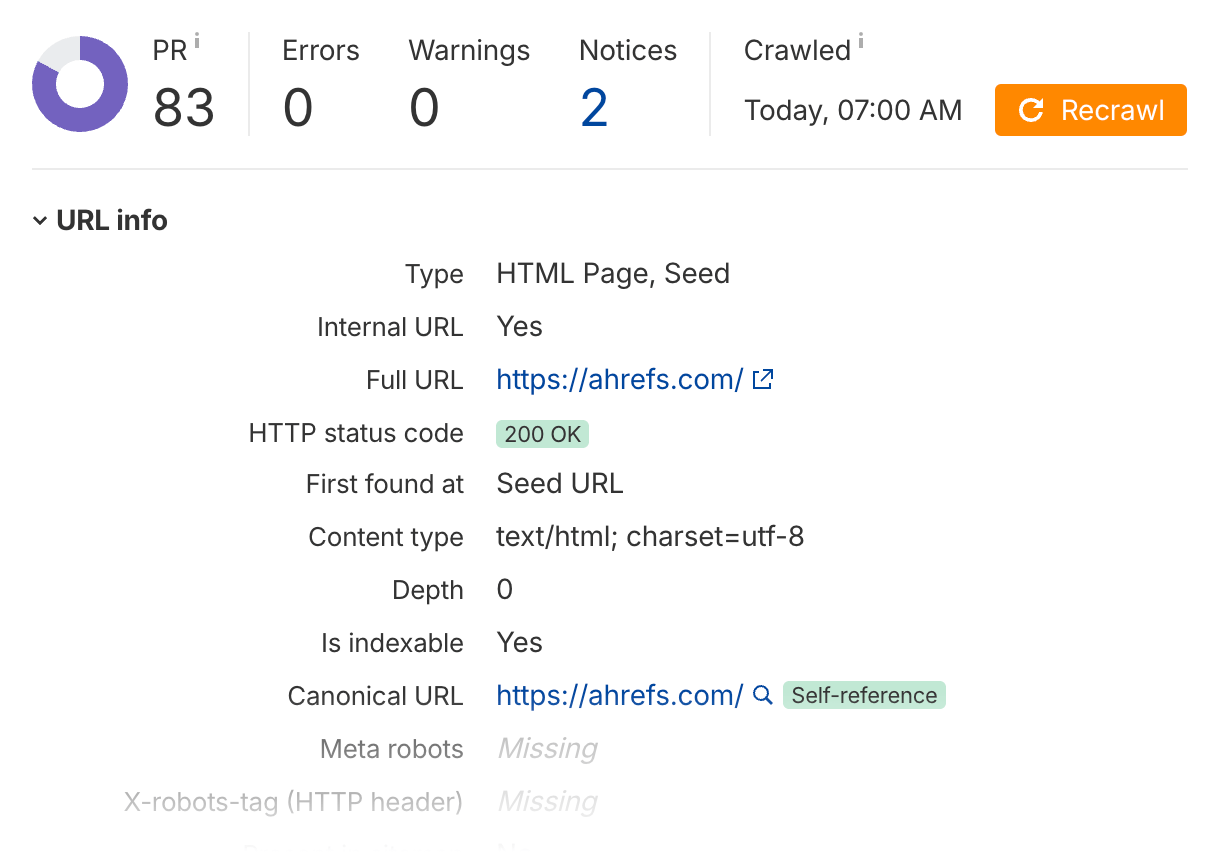
Internal Link Opportunities suggests which pages on your website should link to each other to boost rankings.
Always-on audits crawl your site 24/7 to find new issues as they happen. No waiting for the next crawl.
IndexNow integration instantly notifies search engines about page changes and helps get them indexed faster.
Patch SEO fixes to your website live—no developers needed.
Ahrefs SEO Toolbar gives you on-page insights for any website: wordcount, page titles, outgoing links, structured data, and more—right from your browser.

Get access to industry-leading marketing data.
Create an API request at the touch of a button with the most granular API endpoints on the market:
data points
data points
data points
data points
Connect to Ahrefs MCP
Turn ChatGPT, Claude, or Copilot into your personal marketing analyst with real-time Ahrefs data.
